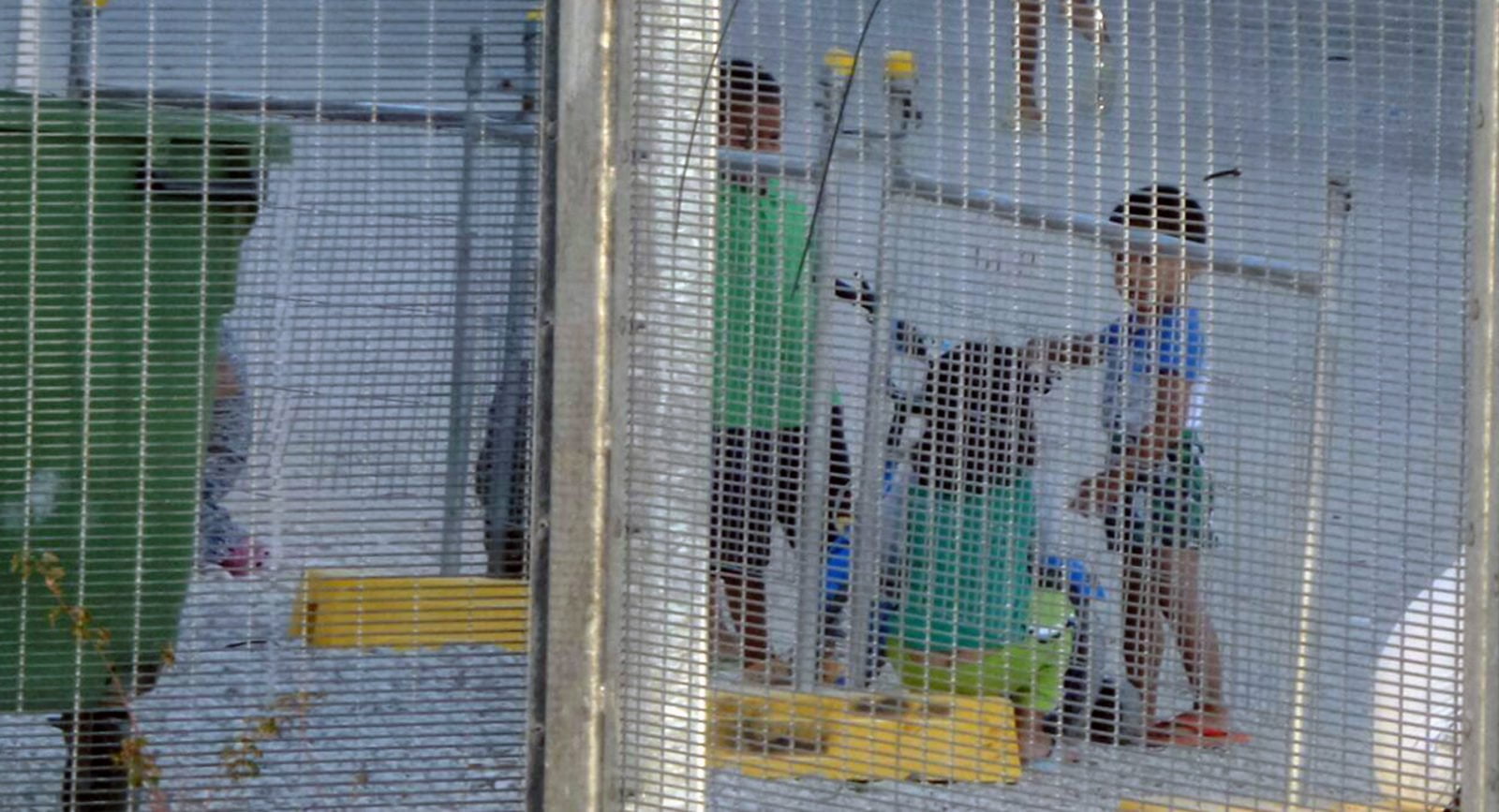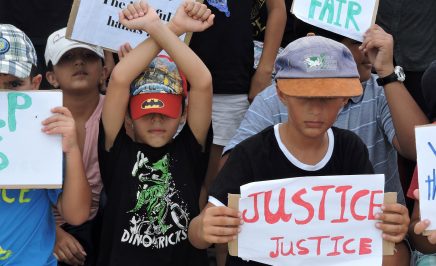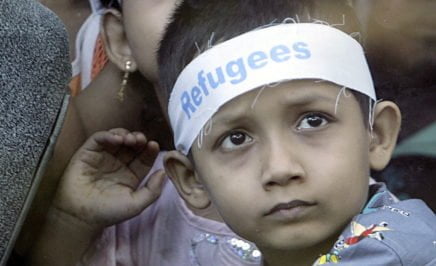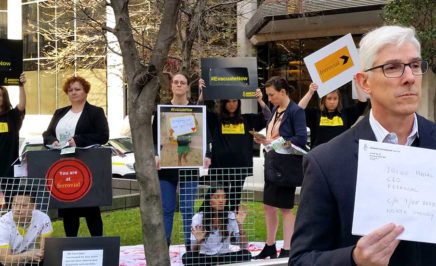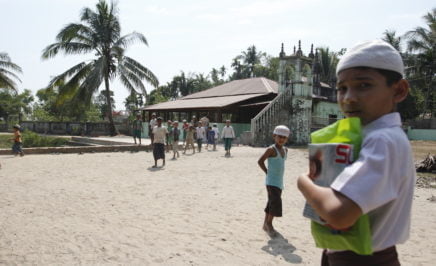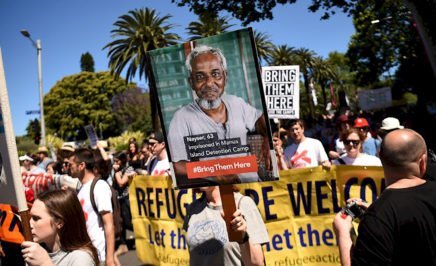The Australian Government is choosing to subject women, men and children to an elaborate and cruel system of abuse with a policy that is intentionally designed to harm people, as highlighted in our new report: ‘Island of Despair’: Australia’s “processing” of refugees on Nauru.
“On Nauru, the Australian Government runs an open-air prison designed to inflict as much suffering as necessary to stop some of the world’s most vulnerable people from trying to find safety in Australia,” said Anna Neistat, Amnesty International’s Senior Director for Research, one of the few people who has managed to enter the remote and secretive island to investigate human rights abuses.
Based on months of research, including interviews with more than 100 people in Nauru and Australia, Amnesty International’s report brings together further revelations of abuse with existing accounts to reveal the full scale of Australia’s system of deliberate cruelty.
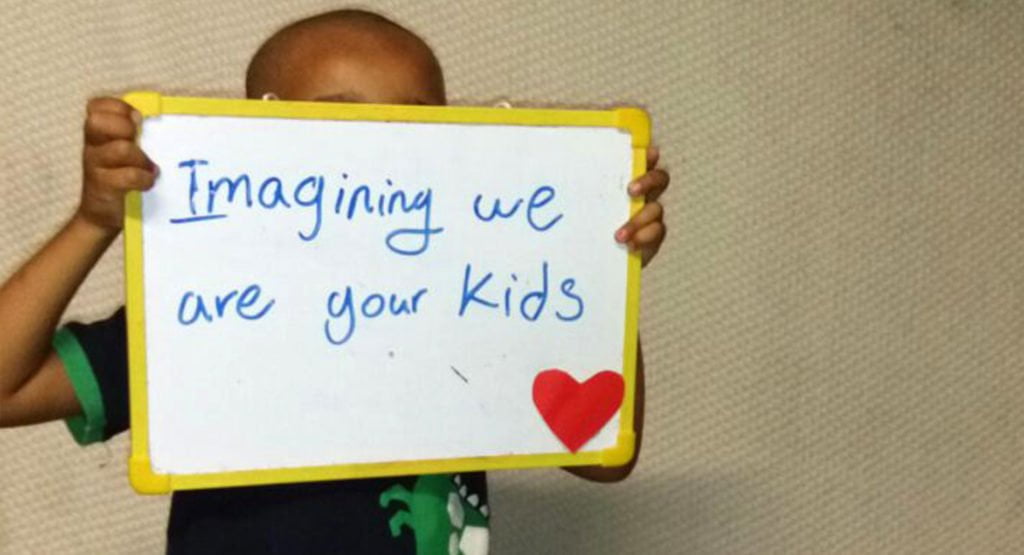
“The distressing and heartbreaking accounts of deteriorating mental health, discrimination and violent attacks, sexual violence, inadequate medical care and harassment that I heard from mothers, fathers, adults and children as young as six, paint a picture of people driven to absolute despair,” said Anna Neistat.
“The distressing and heartbreaking accounts of deteriorating mental health, discrimination and violent attacks, sexual violence, inadequate medical care and harassment… paint a picture of people driven to absolute despair.”
Anna Neistat
“Behind a fortress of secrecy, the Australian Government is isolating over a thousand people – adults and children – in a remote place which they cannot leave, where many in the local population do not want them, and the local police do not protect them, with the specific goal that these people should suffer. And suffer they have – it has been devastating and, in some cases, irreparable.”
Must read Newsweek article on #Nauru @amnestyOz @AnnaNeistat https://t.co/MkBweVVOuG
— Claire Mallinson (@ClaireMallinson) October 17, 2016
“What we are seeing is the Australian Government going to extraordinary lengths to hide the daily despair of the people on Nauru. In doing so, they have misled the Australian public and the world by failing to admit that their border control policy depends on the deliberate and systematic abuse of thousands of people. Abuse is never a solution.”
The people whom Australia has warehoused on Nauru cannot wait a moment longer for a humane solution. Amnesty International is calling on the Australian Government to immediately close down the Nauru and Manus processing operations and recognise that every person seeking asylum and all refugees on Nauru and Manus have the right to come to Australia immediately.
Amnesty International is calling on the Australian Government to immediately close down the Nauru and Manus processing operations and recognise that every person seeking asylum and all refugees on Nauru and Manus have the right to come to Australia immediately.
Driven to the brink – an epidemic of self-harm
Nearly all of the people whom Amnesty International spoke to – including young children – on Nauru in July 2016 reported mental health issues of some kind. Almost all said that these problems began when they were transferred to Nauru.
“People are driven to the absolute brink, largely because they’re trapped on Nauru and are facing debilitating uncertainty about their future,” said Anna Neistat.
“A man told me about his pregnant wife who tried to hang herself because she couldn’t bear the thought of bringing another person into that world. I met children who had tried to kill themselves multiple times.”
“A man told me about his pregnant wife who tried to hang herself because she couldn’t bear the thought of bringing another person into that world. I met children who had tried to kill themselves multiple times.”
Anna Neistat, amnesty international
Parents’ inability to protect their children is one of the many factors which exacerbates suffering of refugees and asylum seekers.
“Yasmin”, “Amir” and their young son “Darius” arrived on Nauru in 2013. In March 2015, when Darius was five years old, he was attacked in the centre by a guard, employed by a company hired by the Australian Government. The guard threw a rock at a group of children who he believed were misbehaving, and hit Darius in the face, chipping off his tooth.
As far as the family could tell, no action was taken to hold the guard accountable, despite the injury to a child. Amir described the heartbreak of watching his wife and son descend into mental illness following this event. Yasmin retreated from the world and has struggled to cope while Darius, according to his father, barely speaks and has nightmares and panic attacks.
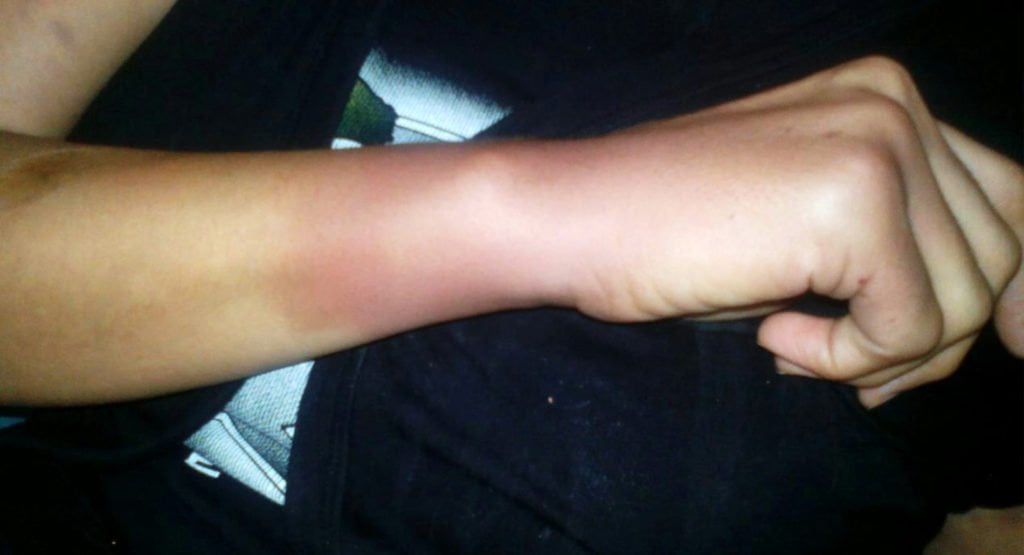
Devastated, Amir said, “I have no hope. It’s end of time here. I can see my son and wife going down day by day.”
“I have no hope. It’s end of time here. I can see my son and wife going down day by day.”
Amir, a father on Nauru
Amnesty International also found that refugees and people seeking asylum on Nauru are the target of abuse by some of the local population, including by people in positions of authority. Despite credible accounts of dozens of physical attacks – including sexual assault – Amnesty International is unaware of any Nauruan citizen being held accountable.
People have also been arrested for self-harming. Despite the fact that Nauru decriminalised suicide in May 2016, Amnesty International has received credible reports that people are still being jailed for threatening to or actually harming themselves.
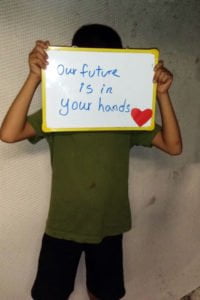
Treatment of refugees on Nauru amounts to torture
Amnesty International found that the conditions to which refugees and asylum seekers on Nauru are subjected amounts to torture.
The combination of refugees’ severe mental anguish, the intentional nature of the system, and the fact that the goal of offshore processing is to intimidate or coerce other refugees and asylum-seekers to achieve a specific outcome, means that Australia’s offshore processing regime fits the definition of torture under international law.
“The Australian Government’s policy is the exact opposite of what countries should be pursuing. It is a model that minimizes protection and maximises harm. The only direction in which Australia is leading the world on refugees is in a dangerous plunge to the bottom,” said Anna Neistat.
“The only direction in which Australia is leading the world on refugees is in a dangerous plunge to the bottom.”
Anna Neistat, amnesty international
There are alternatives – it’s a matter of political will
Amnesty International’s report highlights that Australia’s focus on deterrence has prevented successive Australian leaders from putting in place policies that both protect the human rights of people seeking asylum and prevent avoidable deaths – twin goals which should be the bedrock of any asylum seeker policy.
“There are humane solutions – that both reduce deaths at sea and eliminate abuse – one shouldn’t come at the expense of the other.”
“There are humane solutions – that both reduce deaths at sea and eliminate abuse – one shouldn’t come at the expense of the other.”
Anna Neistat, amnesty International
“It’s time for the Australian Government to explore humane alternatives that actually keep people safe. It’s simply a matter of political will,” said Anna Neistat.
Amnesty International urges the Australian Government to show genuine leadership and adopt a better plan for refugees which could include:
- Boosting Australia’s aid program to help neighbouring countries better protect and support refugees. When people are legally recognised, have safe accommodation, can send their kids to school, and can work and access health services, they won’t be forced to make dangerous journeys to Australia.
- Making sure the most vulnerable people are resettled within our region and globally. Pressure on individual countries can be reduced if Australia works closely with New Zealand, Japan, the USA, Canada and others to ensure everyone does their fair share. This includes Australia welcoming a minimum of 30,000 refugees per year through its resettlement program.
- Including refugees in existing visa programs. In addition to Australia’s core resettlement program, to recognise the valuable skills and qualifications of many refugees by including them when allocating student, work and family reunion visas.
- Assessing refugee applications within a defined time period. When people know they will be assessed in an efficient and orderly way, they are less likely to make a dangerous boat journey.
- Undertaking timely search and rescue operations. Instead of hazardous push-backs of boats at sea, Australia can run search and rescue operations that save lives.
We’re campaigning hard to close offshore detention and bring people here to safety. Together we can protect the lives of refugees. Please support this urgent work.
